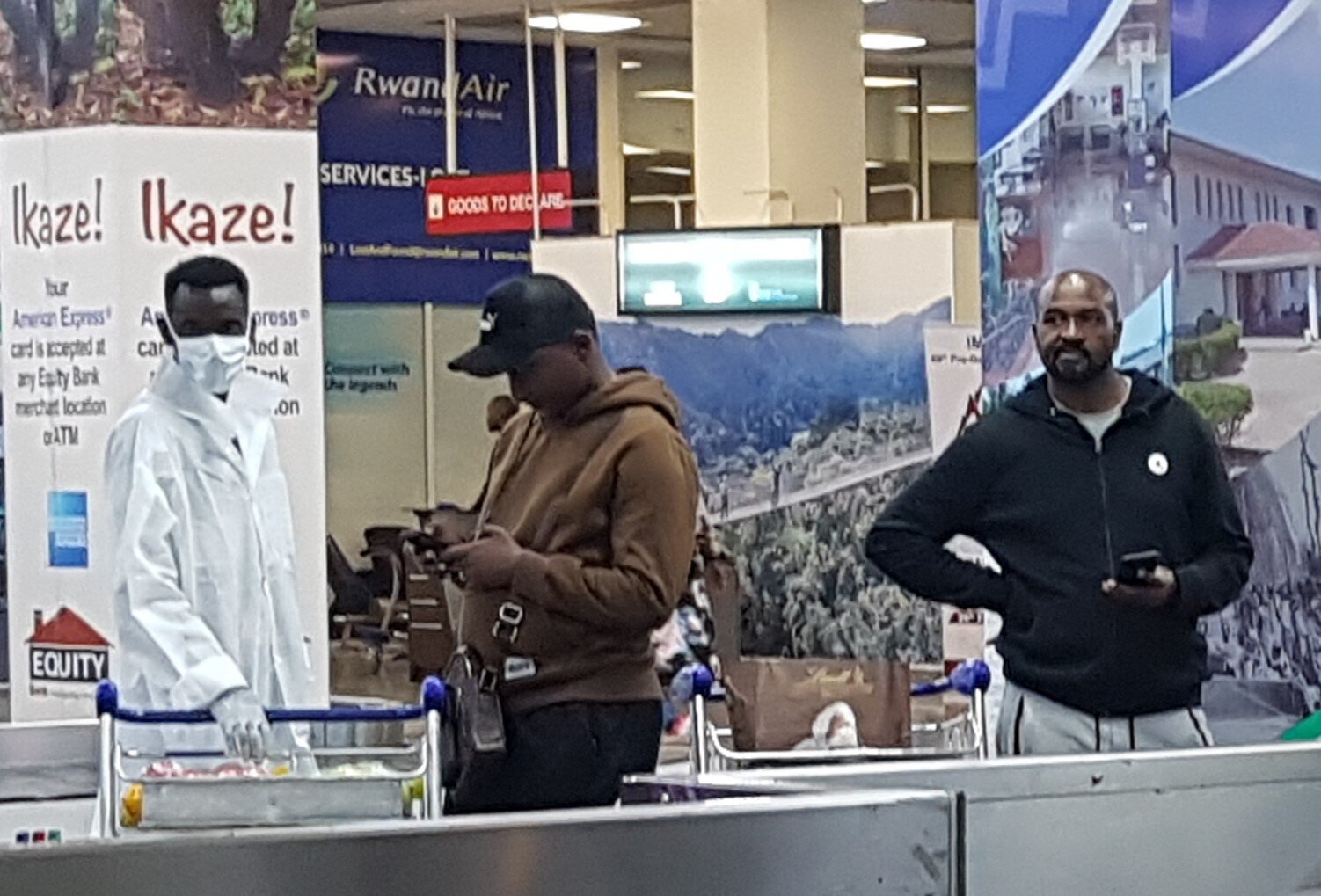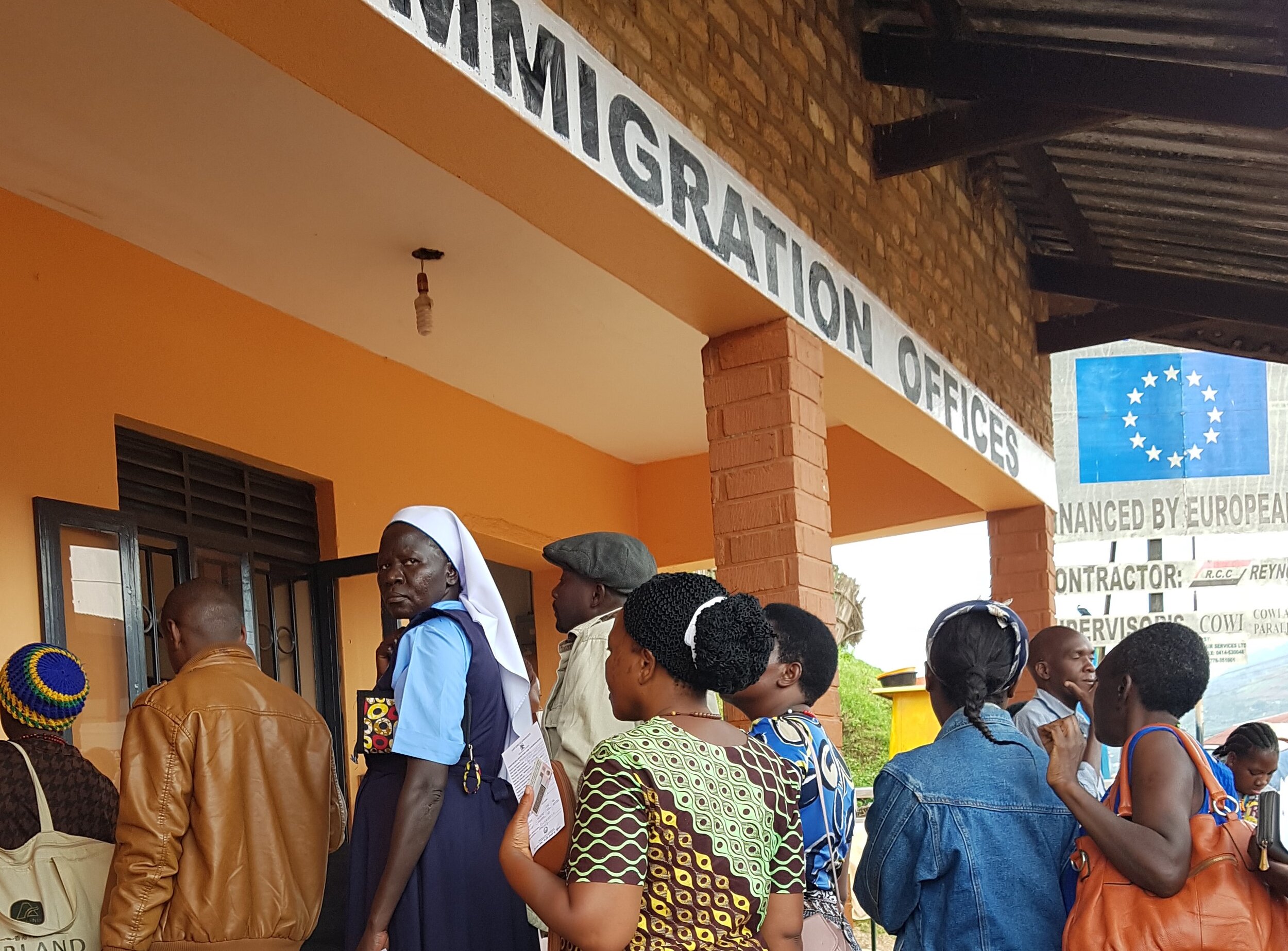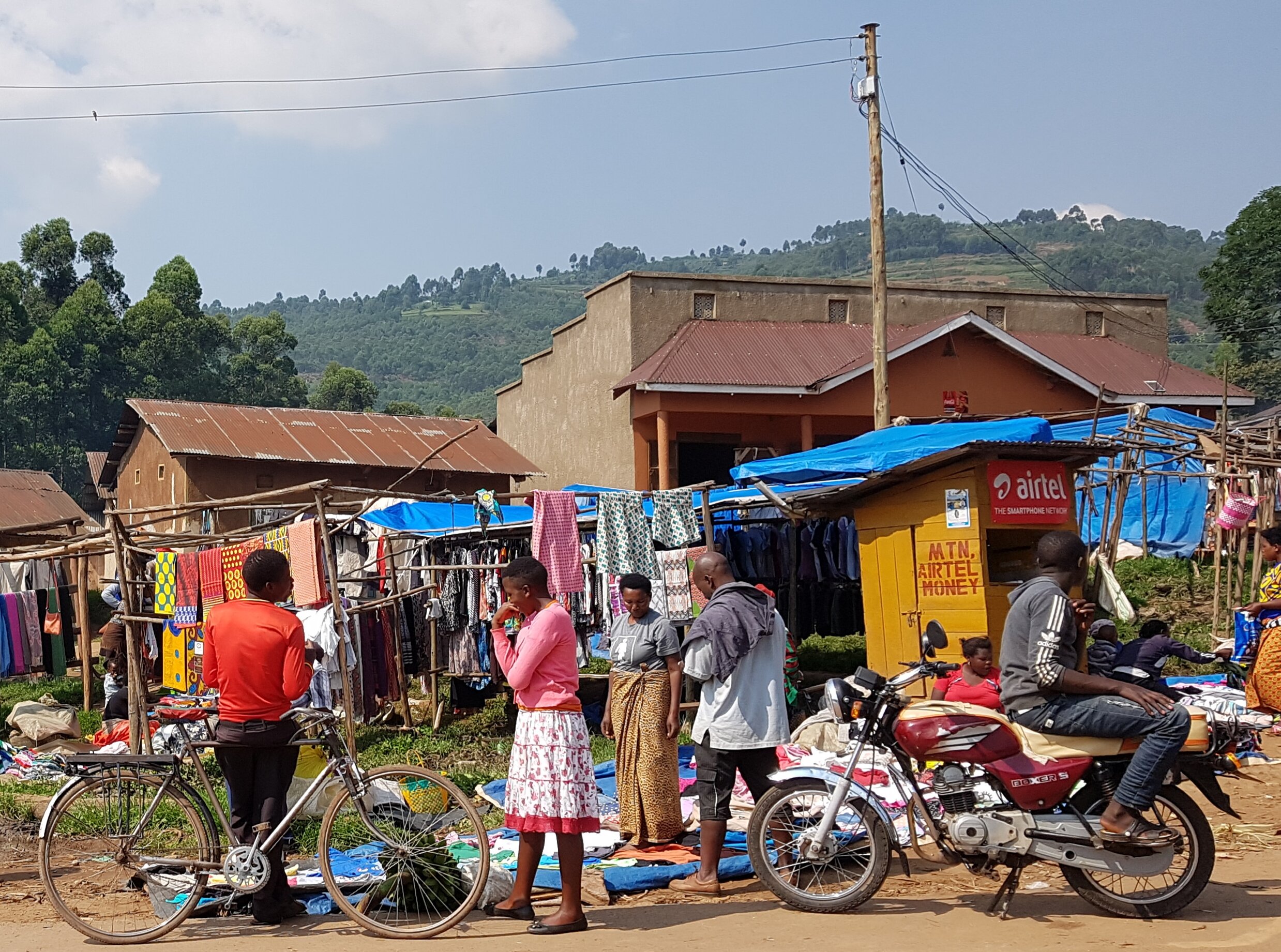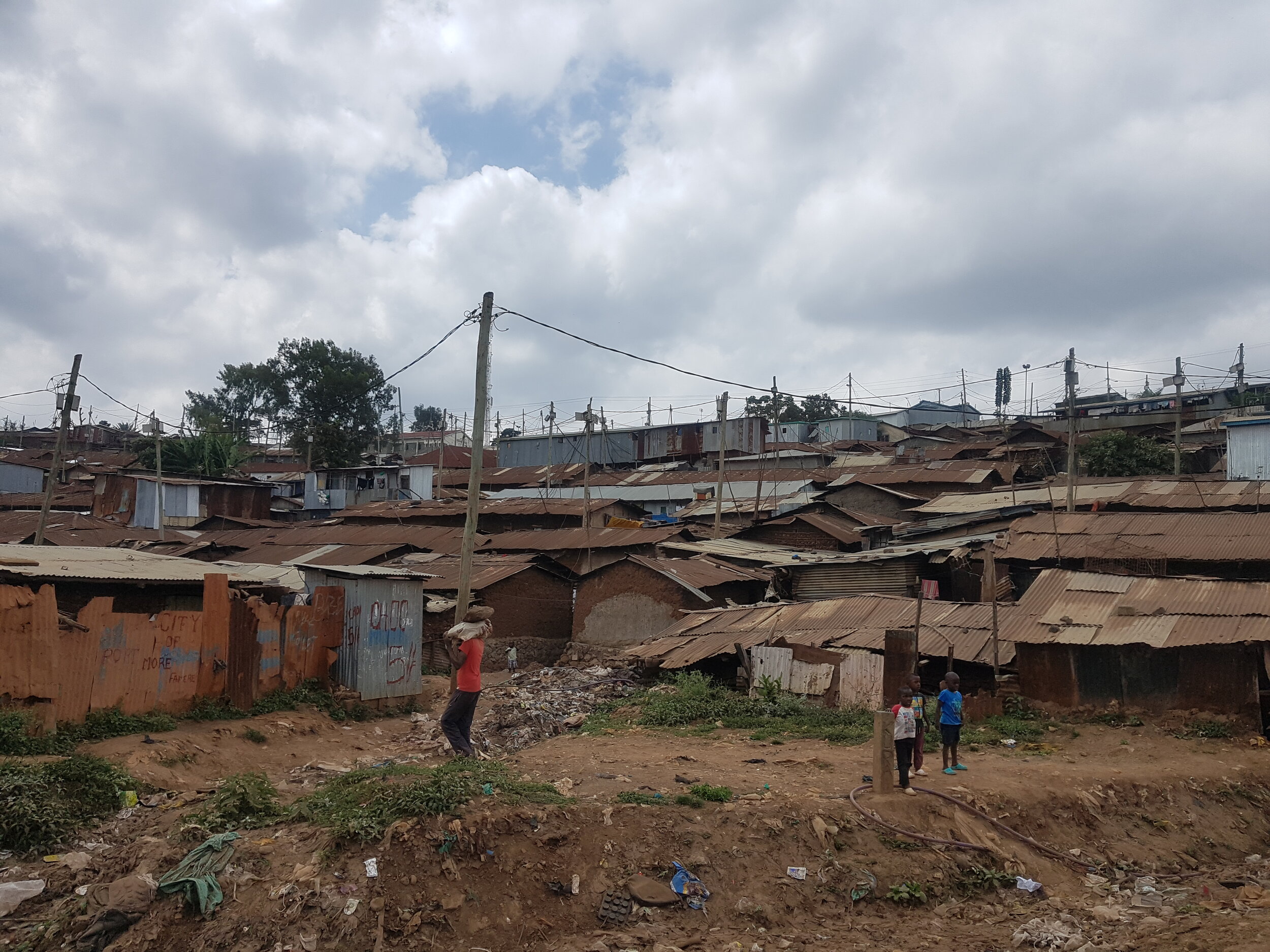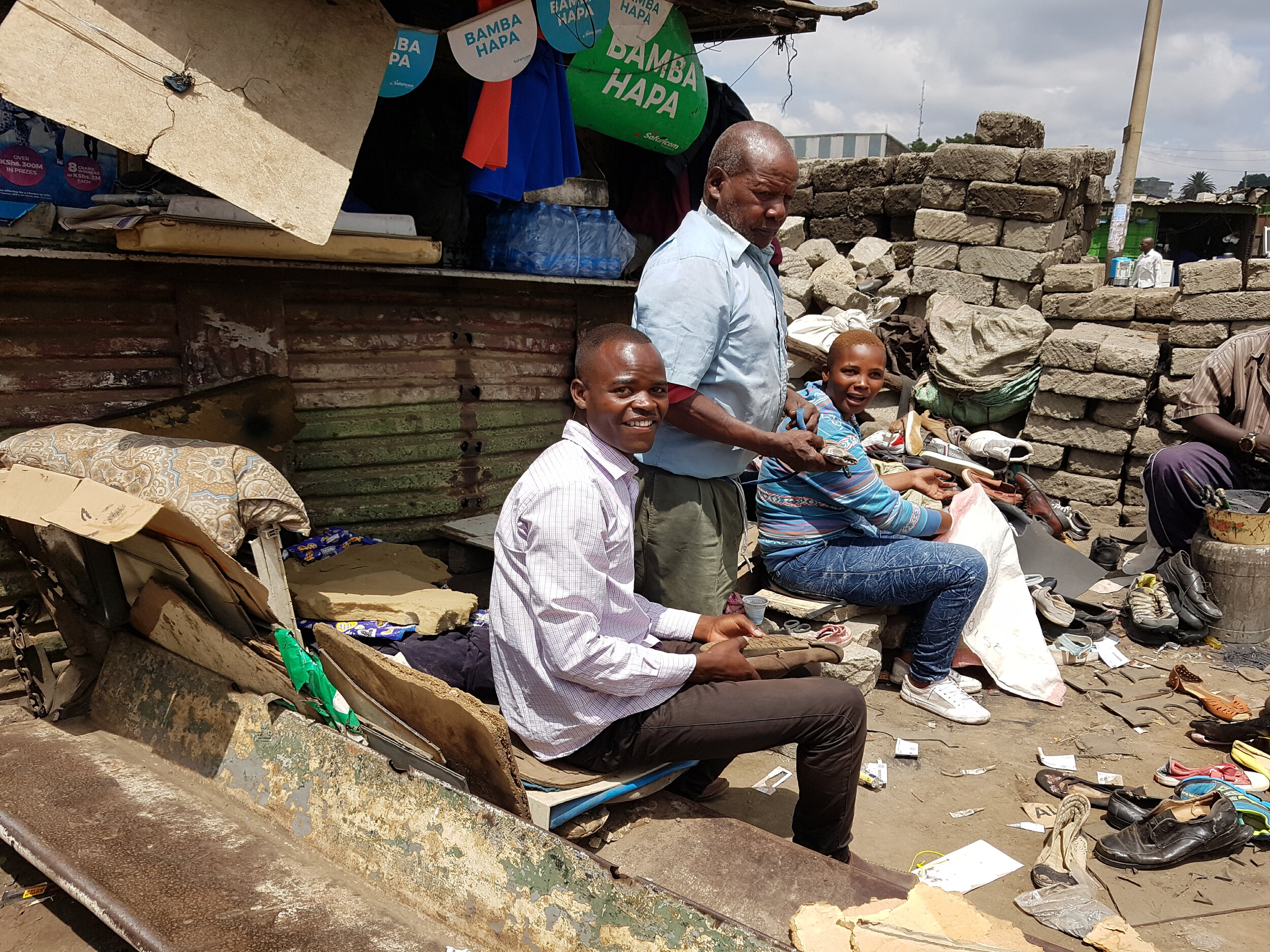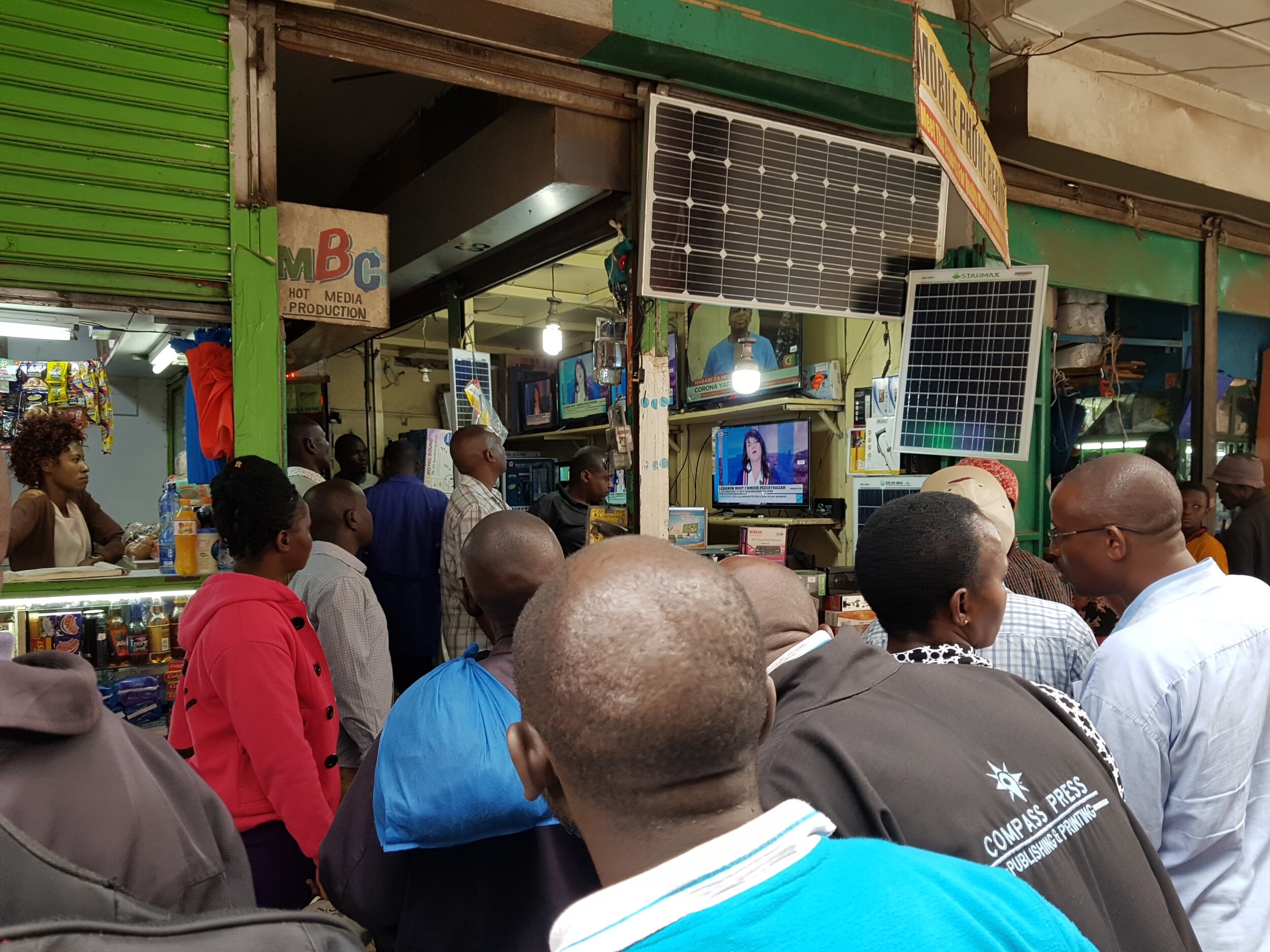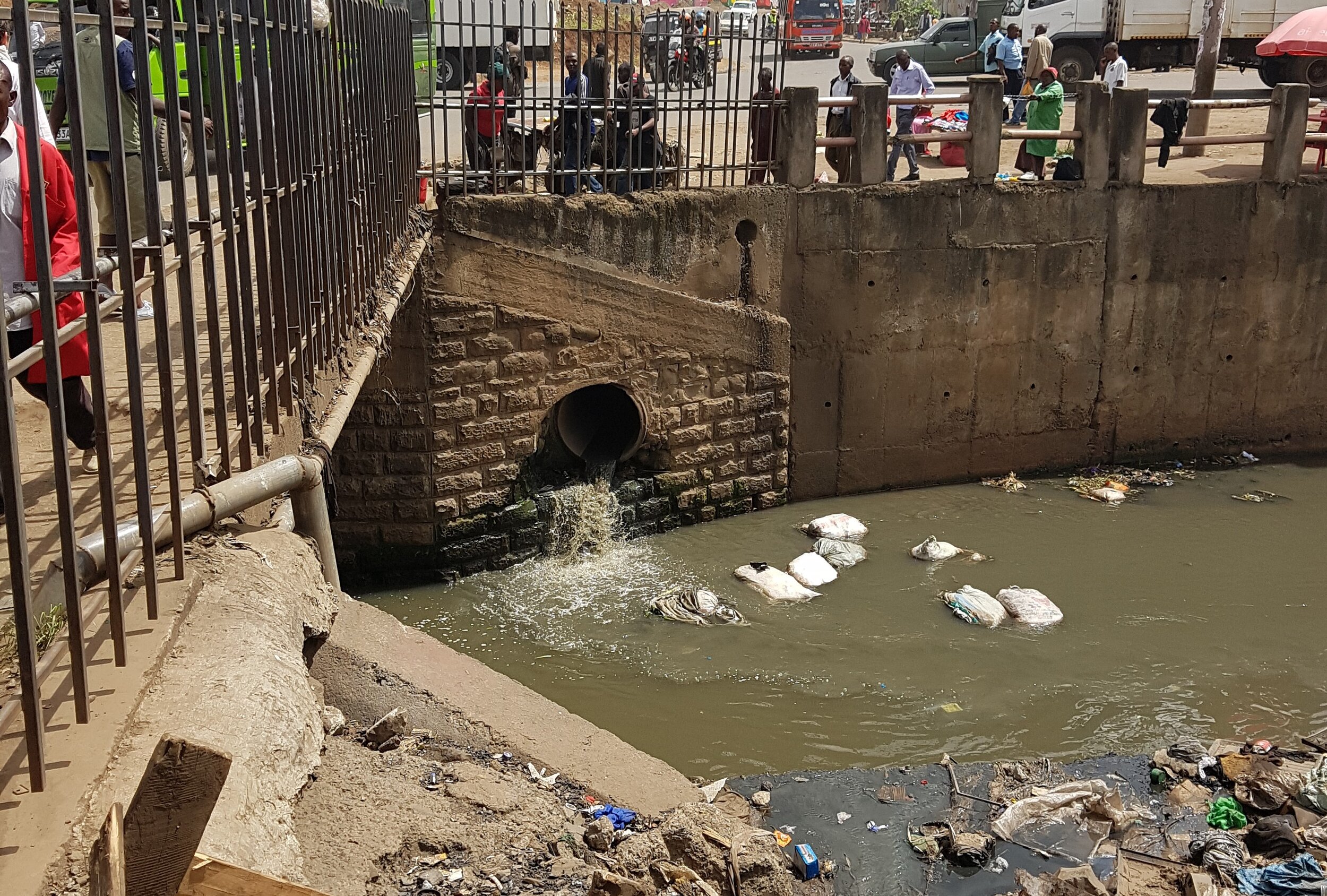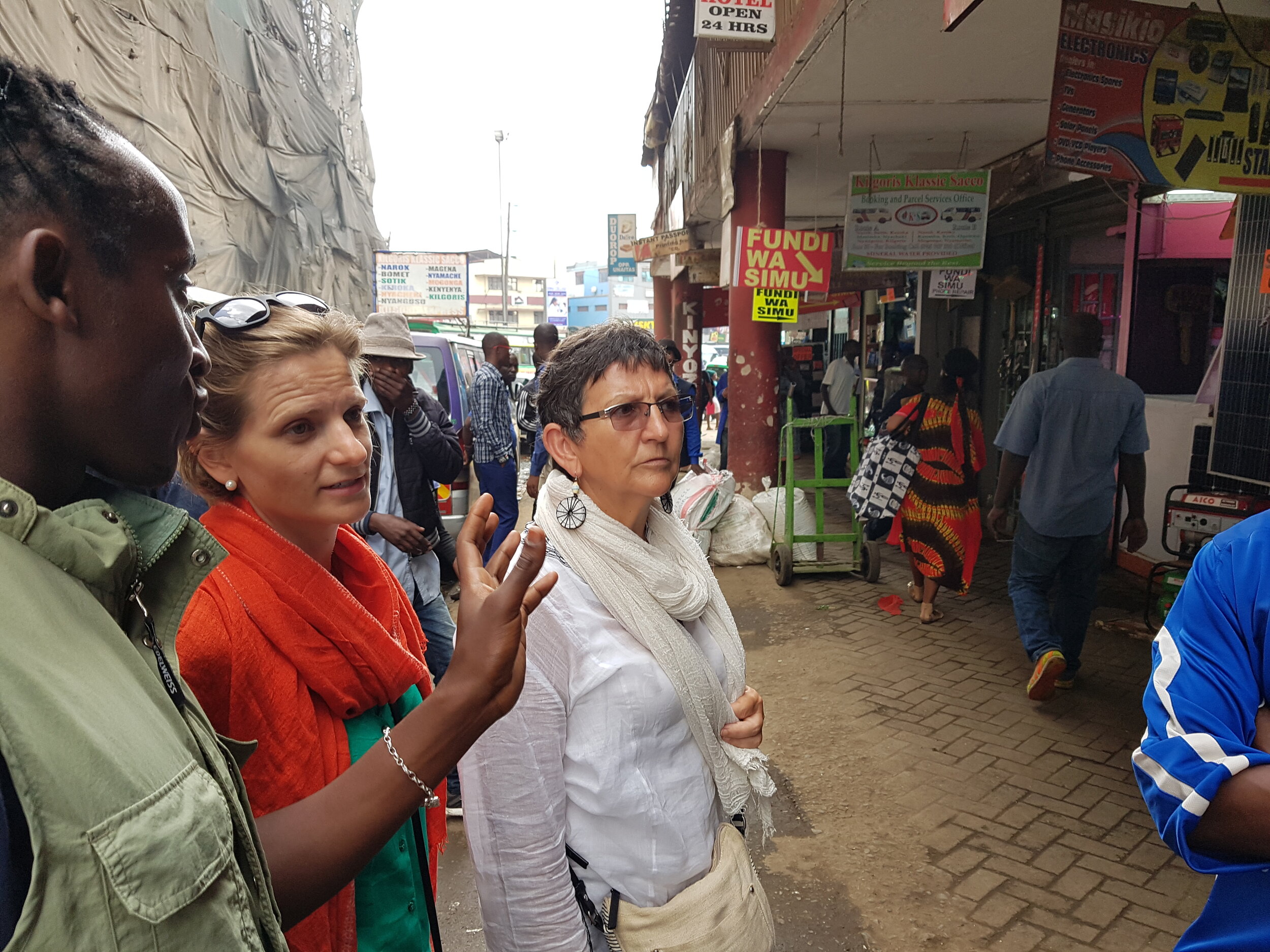Only a few days back we watched people stare at a TV broadcast in the impoverished downtown area of Nairobi, announcing that a first case of coronavirus infection was discovered in Kenya. Starting 15th February, we traveled to South Africa, Rwanda, Uganda and Kenya. As we explored these countries, met up with old friends, enjoyed the fantastic sceneries and wildlife Africa is known for and learned more about its cultures and habits, the COVID-19 pandemic in the rest of the world was a daily news highlight. But Africa seemed not to be affected yet.
When we arrived at Cape Town international airport at the start of our trip, a friendly officer checked our temperature and let us in. At the time many passengers laughed at this procedure. Corona seemed to be so far away. Two weeks later at the Kigali international airport in Rwanda, a medical officer in a white gown, wearing face mask and goggles checked our temperature with a hand-held scanner and noted down where we came from and where we were traveling to. He then directed us to a dispenser for us to wash our hands with a disinfectant. It all made a serious impression. Crossing from Rwanda into Uganda, dare I say it, it seemed nobody ever had heard of proper border checks, never mind health checks. Returning back through the same border crossing a few days later, our daughter and Francien had their head temperatures scanned by the Rwandan official. However, because they were OK, the officer decided that he did not need to check mine! We then flew from Kigali to the Kenyan capital Nairobi. At the Jomo Kenyatta international airport, much to our surprise, nobody conducted any temperature checks of the disembarking passengers.
All this happened during the last four weeks, the global coronavirus pandemic escalating around the world except Africa.
In Nairobi we walked through the downtown area. It is a maze of cramped, makeshift shops and dwellings. Closely packed, decrepit housing units in a situation of deteriorated or incomplete infrastructure, inhabited primarily by impoverished people. It is run by the people living in the nearby slums. We walked on unstable pavements, dirt tracks, crossing potholed roads with chaotic traffic of matatu's, cars, bikes and tuk-tuks. Poverty pure! Beggars on the streets, street kids sleeping on the pavements. Hawkers sold old cloth, cement, food, second-hand car parts and used shoes. 'Mzungu' [white person] some called us. The Mathare River running through is an open sewage. We smelled the garbage piled at some street corners. In front of one makeshift shop people gathered to watch a news broad cast on a small TV. It was the announcement that the first case of a coronavirus infection was discovered in Kenya and that other African countries were affected alike.
‘They are very worried’ Peter our guide and former street kid said: ‘because they do not understand what this virus means for them.’
In Uganda and Kenya, apart from a few brick and mortar hospitals, we saw most medical clinics along the roadside were simply not more than a shack in which a doctor would see patients. Here the health infrastructure is extremely basic. Seeing on the internet how difficult it is for the wealthy countries to fight this pandemic, I dare not think about how this is going to affect Africa. Less than 50% of the people on this continent have access to any medical system, no matter how basic. On top of that, in many countries, 10 -20 % of the people have HIV/AIDS. Not to mention that malaria and tuberculosis is still widespread. All this making these people even more vulnerable.
As we were waiting in our almost empty hotel (only 10 guests in the 350 rooms) in Nairobi for our flight back to Kuala Lumpur, many airlines started to cancel flight as governments were closing their borders. Also, Kenya decided to close its border within 48 hours. Normally there are three daily flights out of Nairobi to Doha. These were reduced to one single flight. The airline web pages and call centers were overloaded and not reachable. The ground staff did not always know what to do in this unusual situation. Long lines of passengers eager to get out. Long delays. It was all chaotic. But eventually with the remaining hand full of passengers we were scrambled together into one small airplane, making it for us an uncomfortable journey back home.
Much to our surprise when we disembarked at the Kuala Lumpur international airport, which by now was deserted, nobody bothered to do any individual health checks whatsoever. (they did have thermal-imaging cameras)
When we arrived at our condominium the Nepalese security guard scanned our temperature:
‘You are 36.5 C, you can come in.’ he said in a friendly tone.
Finally we were home. But only hours later the Malaysian government announced sweeping measures to contain the coronavirus outbreak. One of them closing its borders to foreigners like us. Woow, we were lucky to get back just in time!
Empty shelves in our local supermarket in Kuala Lumpur
Francien and I went to our local supermarket to fill-up our empty fridge. Many shelves were empty. People had started to hoard essentials to prepare for a two weeks travel and movement restriction in Malaysia. For now we are locked down in our apartment in Kuala Lumpur, eagerly following the news around the world on the fight against COVID-19. However, I keep thinking back to those people in Africa who will have to deal with this pandemic but have little means to fight it. I have no doubt, as soon as the wealthy countries have overcome this pandemic in a few months from now, they will have to turn to Africa once again and help them to overcome yet another catastrophe on this beautiful continent. Remember, we are all in this together.
Stay healthy.

